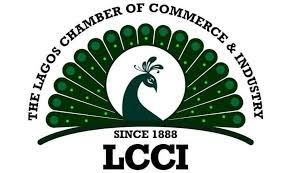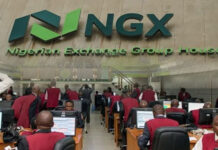LCCI seeks targeted interventions to support manufacturers, farmers for GDP growth
The Lagos Chamber of Commerce and Industry (LCCI) has called for targeted fiscal interventions to support manufacturers and farmers, aiming for more inclusive Gross Domestic Product (GDP) growth.
LCCI Director General, Dr Chinyere Almona, said this in a statement on Wednesday in Lagos, in reaction to the National Bureau of Statistics (NBS) GDP growth report of 3.46 per cent.
She said that the recent statistics reporting growth in economic activities and the latest 25 basis point hike in interest rates by the Monetary Policy Committee of the Central Bank presented a reality.
Almona stressed that beyond statistics, the economy needed to witness a sustained boost in production to support the relevant fundamentals in the economy.
She said that a major concern was the burden of a constrained real economy and a tense business environment that further weakened the manufacturing and agriculture sectors.
She said that the banking sector had been unable to fulfill its financial intermediation obligations to the private sector due to inherent economic risks.
According to her, with the high interest rate, an elevated inflation rate, high energy costs, insecurity, and foreign exchange illiquidity for imported raw materials, the operating environment is quite unbearable for businesses.
“In our quest to achieve inclusive growth that creates jobs, we need to sustain targeted interventions like import waivers, tax exemptions, and efforts toward achieving zero fuel importation.
“We have consistently advocated and still wish to urge the government to consider a fixed import duty exchange rate to allow for better business planning by importers.
“Every effort is required to resolve all uncertainties and controversies in the oil and gas sector to improve oil production levels.
“Without an increase in economy-wide production, our fundamentals may remain weak, irrespective of the dimensions of our economic indicators,” she said.
The director-general noted that beyond rate hikes, Nigeria needed to invest more in infrastructure, boost oil production to supply enough crude to local refineries and support the production base of the economy through cost-saving interventions.
“The insecurity factor has remained a dominant negative variable in explaining the harsh economic conditions we face today.
“With the increase in revenue generation, saved funds from subsidy removal, and the move towards a zero-fuel import era, we expect massive investment in power, transportation, security, and agricultural infrastructure to boost food production.
“With these investments must come an enabling business environment driven by policy consistency, the right regulatory frameworks, and the will to drive reforms to fruitful conclusions,” she said.(NAN)(





















